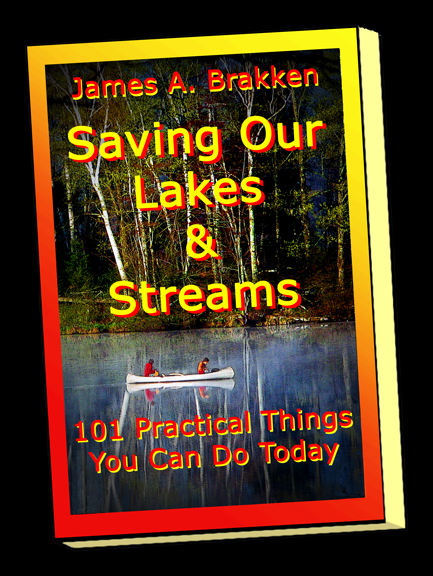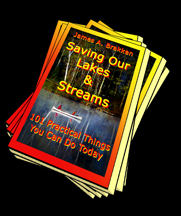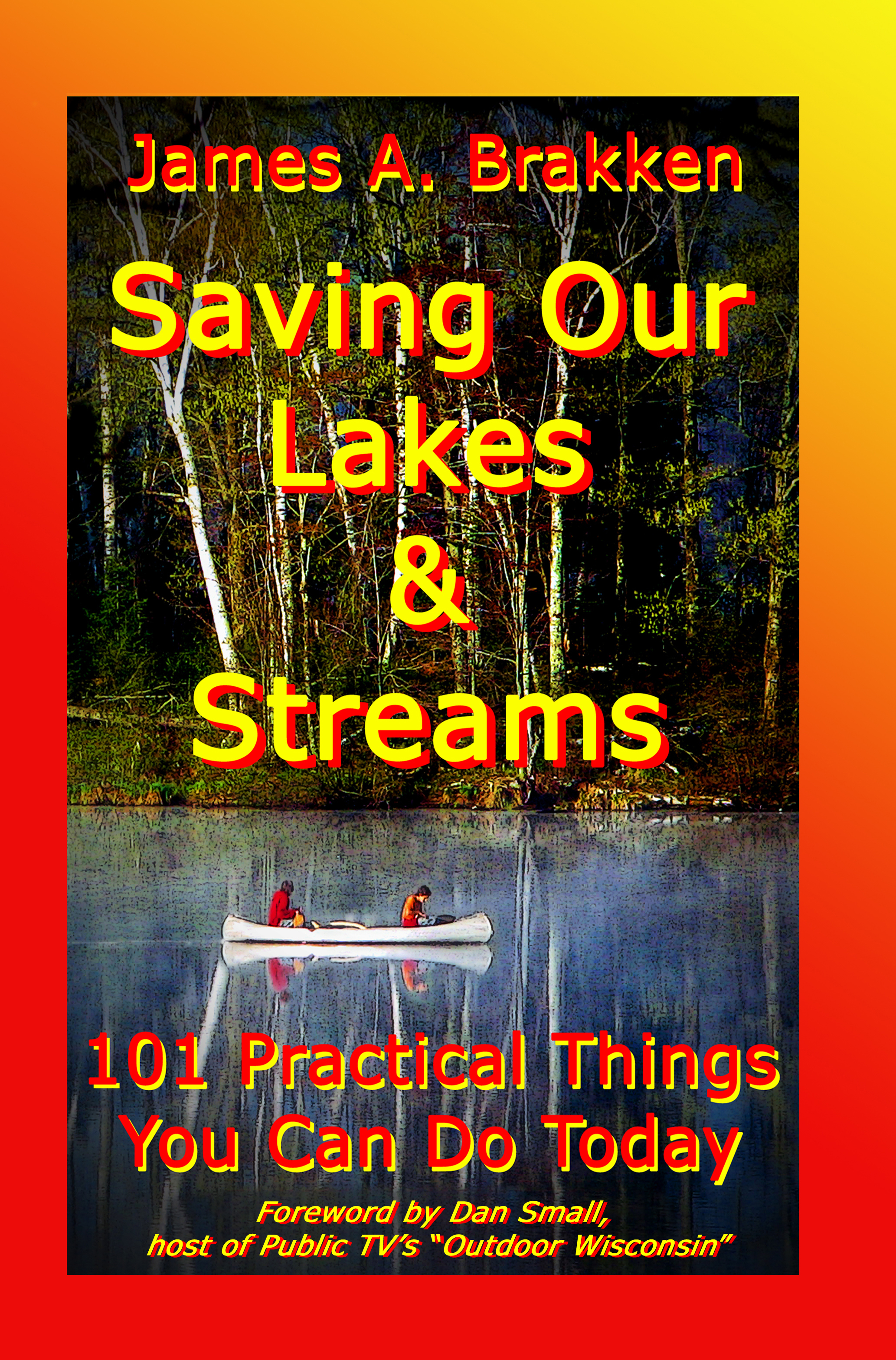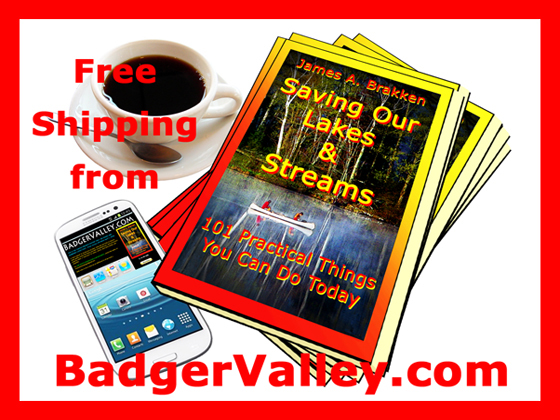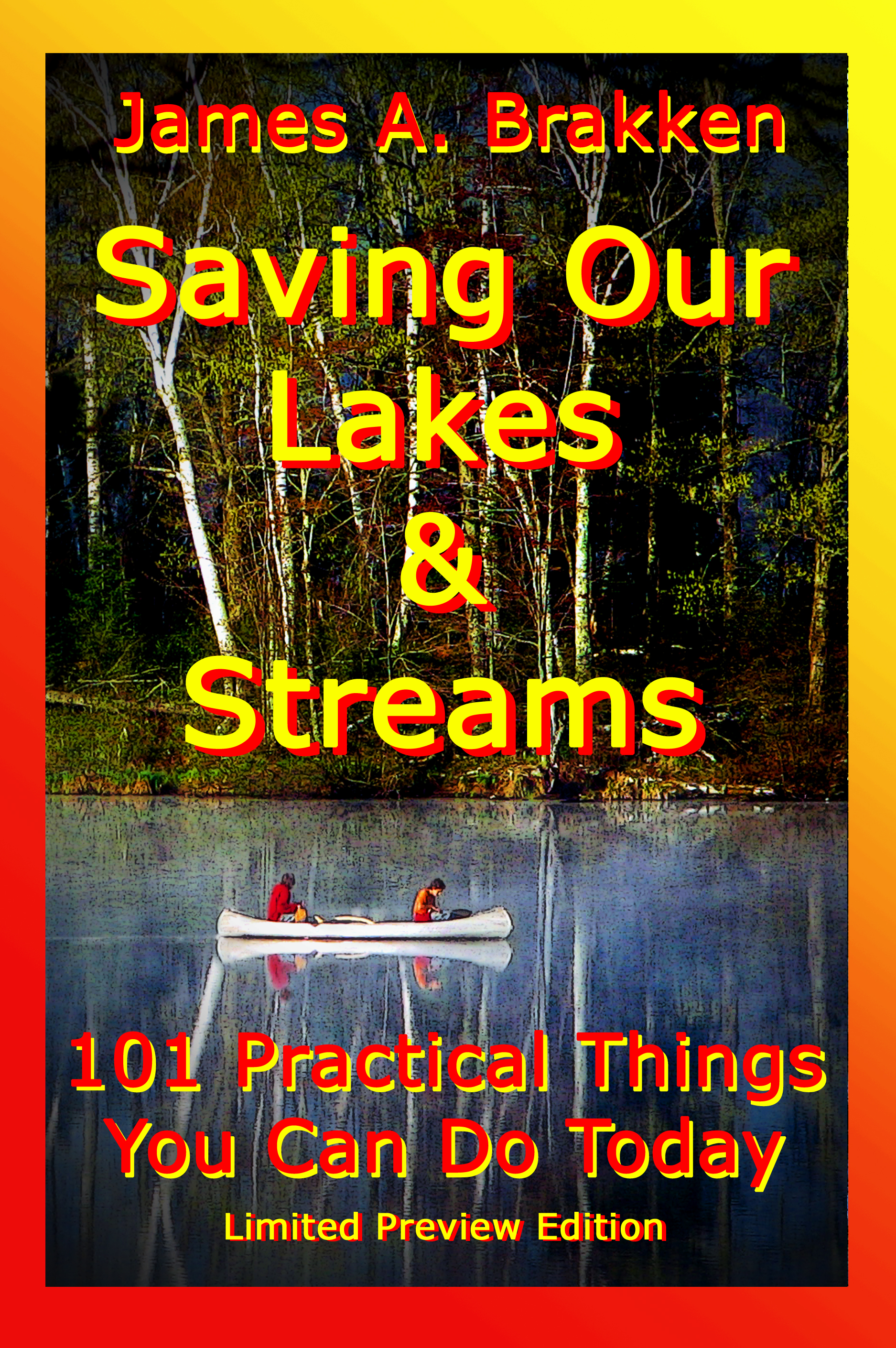Here’s one of the chapters:
2
Savoring Nature
Sound Advice
Many
of us are attracted to our lakes and streams because of their distinctive
beauty. We are intrigued by aquatic plants and animals above and below the
surface. And the enchanting movement of nature reflected in shimmering waves
fascinates us. But their beauty goes beyond what we see. We feel the cool water
when we wade or swim. We smell the freshness of a lake breeze. In fact, all our
senses enhance our experience, including our hearing. Nowhere more than by
water are the marvelous sounds of nature revealed. In fact, the flat surface of
a quiet lake or river allows sound to carry farther, thus increasing the
experience of these sounds.
However,
human activity can easily overpower the sounds of nature. For example, the roar
of a chainsaw or sounds of other power tools early in the morning or late
afternoon and evening may intrude upon others’ enjoyment of the water. Blaring
music and the incessant barking of a dog can be equally disturbing.
What you can
do:
12. Make every
effort to reduce noise whenever possible, especially in the late afternoon and
early evening when many others on our lakes and streams enjoy the sounds of
nature.
13. Always
remember that sound carries farther over water.
14. The joyous
sounds of kids playing on the beach might be music to your ears, but maybe not
your neighbor’s. We have two simple rules for kids swimming at our house.
First, talking while swimming is fine, but anyone shouting or screaming has to
take a ten-minute timeout. Second, the only time we shout “help” is when we
really need help.
15. In the
summer months, try to avoid use of chain saws, lawn mowers, or loud power tools
early in the morning or late in the day.
16. Save your
fireworks for the July 4th weekend and never use them over the water.
17. Do any
target shooting far away from the lake, perhaps at the local gun club. (Never
shoot at or toward the water. You'll have no idea how far that bullet will go
or where it will end up.)
18. Avoid using
your outboard before breakfast. Use your electric motor or your oars, instead.
19. Quiet your
pets. Barking dogs and quiet lakes don’t mix. Watchdogs should be taken inside
if they persist in barking at boaters. Consider an electronic training collar
for your barky dog.
20. Turn down
the volume on your stereo or TV. The noise coming from inside your house may
not sound very good from across the lake, even though it’s your favorite
entertainment.
Sound
Carries Over Water
A
few years ago, my neighbor and I had a conversation while cleaning fish. Joe
was on his dock. I was near mine. The content of our conversation I do not
recall, although it probably centered on the morning's catch. What I do
remember is that, although Joe was on his dock and I on mine, on this clear,
calm morning we were able to converse in normal tone and volume even though we
were over 200 yards apart. It was almost as though we were talking over coffee
across the kitchen table.
Lake
Acoustics
Many
who are unaccustomed to being near a lake may be unaware of the unique and
wonderful acoustics of water. In another environment, sound can be absorbed by
grass, rocks, walls, trees, cars, and everything else that it bumps. A lake is
different. The water surface reflects sound. The smoother the lake, the better
and farther sound travels. This effect is amplified by morning and evening air
inversions, making sound carry farther and clearer yet.
This
unique condition can cause problems. First, we all need to realize that every
conversation that takes place on or near water can probably be heard over a
long distance. Family discussions and conversations of a sensitive nature
should be kept within our walls. Be sure guests and youngsters are aware of
this. Next, we must realize that what some consider normal sound may be
noise pollution to others. To twist a phrase, one person’s “sound” treasure may
be another person’s trash!
We
all need to work to combine the unique and wonderful characteristics of lake
acoustics with common courtesy. Throw in a handful of understanding, too,
because on rare occasions we will hear sounds from an early morning
construction crew, reports from a duck hunter's gun, a chain saw, or the bark
of a watchdog on the job.
Surveys
show the number one reason people come to our lakes is for peace and quiet. If
we remember that sound carries better across water than land and we make an
effort to control our noise, our lakes will sound more like they did a century
ago. That’s good for all who cherish nature and our lakes.
End Sample Chapter
More Sample Tips:
What you can do about littering at our lakes:
1. Never
throw anything in the water other than your bait when fishing, yourself when
swimming, and the occasional skipping stone.
6. After
cleaning fish, place the remains in the trash for disposal away from the lake. (During warm weather, some anglers wrap and
freeze the remains until the trash is picked up.)
What you can do about the spread of invasive
aquatic species:
7. Between
landing and launching, clean and inspect your boat, motor, trailer, anchor, and
fishing gear for aquatic plants and animals. Not only can they harm a lake or
stream, transportation of plants or live aquatic animals on any Wisconsin
roadway violates state law and can result in a hefty fine.
What you can do about pollution of our surface
waters:
11.
Maintain your septic system. Nutrients from a poor system will seep through the
soil and end up in the lake. Nutrient-rich water offers invasives a greater
opportunity to thrive.
What you can do about light pollution near the
water:
29. Rather
than dusk-to-dawn switches, use motion detectors to control security lights and
walkway lights.
30. Never
use solar lights as landscaping features in areas that can be seen from the
water.
What you
can do about our loons, swans, and raptors dying from lead poisoning:
62. Stop purchasing toxic lead sinkers and jigs. Use only
non-toxic terminal tackle. Remember, one lead sinker or jig can kill a 12-pound
loon.
63. Outfit youngsters’ tackle boxes with non-lead items. They are
far safer for kids to handle.
64. Most communities have toxic waste disposal opportunities
where your lead tackle can be recycled. Do not give your toxic tackle away to others or
offer it in a yard sale.
What you can do about creating a natural
waterfront:
70. Just
don’t mow! Allow the natural
landscape to return and flourish. Follow the laws restricting the cutting of
trees, shrubs, and grasses in the near-shore area.
73. Use the simple steps found in this book to build
a rain garden.
What you can do to protect your lake and
property value
76. Join
your local and countywide lake organization. Your support will strengthen their
ability to protect your lake and your financial interests.
The above 12 are part of a total of 101 simple tips. The 75 short articles explain, in a non-confrontational fashion, why we need to do these things. This is a wonderful book, especially for new waterfront owners, town officials, short-term renters, campers, resorts, and kids--if we want them to learn how and why to care for our lakes and streams. Lake associations and other conservation groups can purchase these for half the cost of James Brakken's other books. Use them to attract new members, use them for a fundraiser, or just get them into the hands of others to help protect your lake. Huge discounts through Labor Day, 2016. Shipping and sales tax is paid by the author. Order 1 for $15 or order in bulk to pay only $12, $10, or $9. (For a fundraiser, order at $9 and sell for $15 to make more profit than bookstores!)
This is from Dan Small, host of WPTV's OUTDOOR WISCONSIN:
"If
you fish, hunt, motor, paddle, or swim in our waterways, you need this
book. Whether you live in a multi-million-dollar home on Lake Geneva,
have a seasonal lakeshore cottage, or simply spend an occasional weekend
at a rental cabin on a lake up north, you need this book. Saving Our
Lakes & Streams should be required reading for all state, county,
and town officials, for those who plan a career in natural resources,
and for everyone who treasures water recreation."
See Dan Small's FOREWORD at the bottom of the page.
